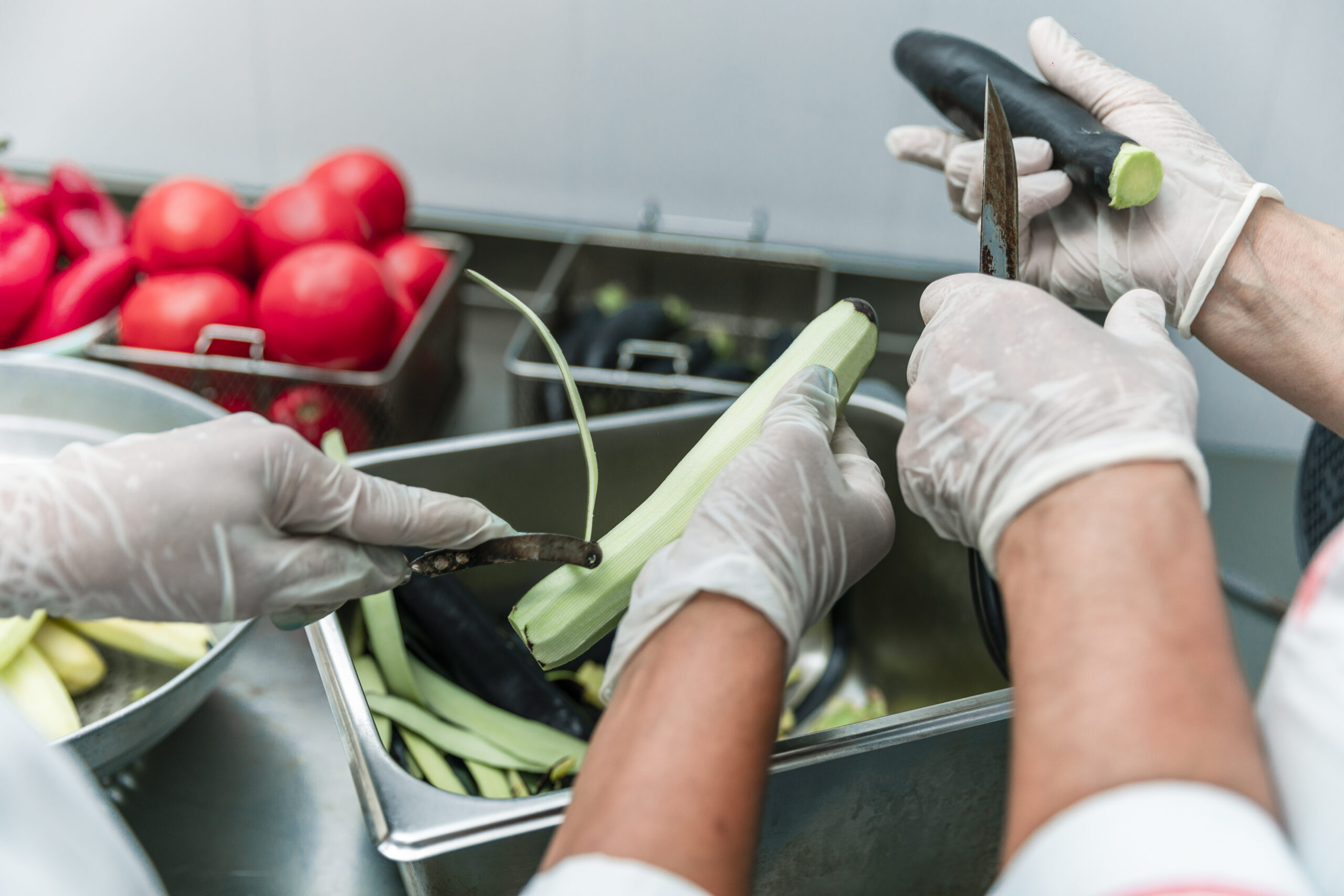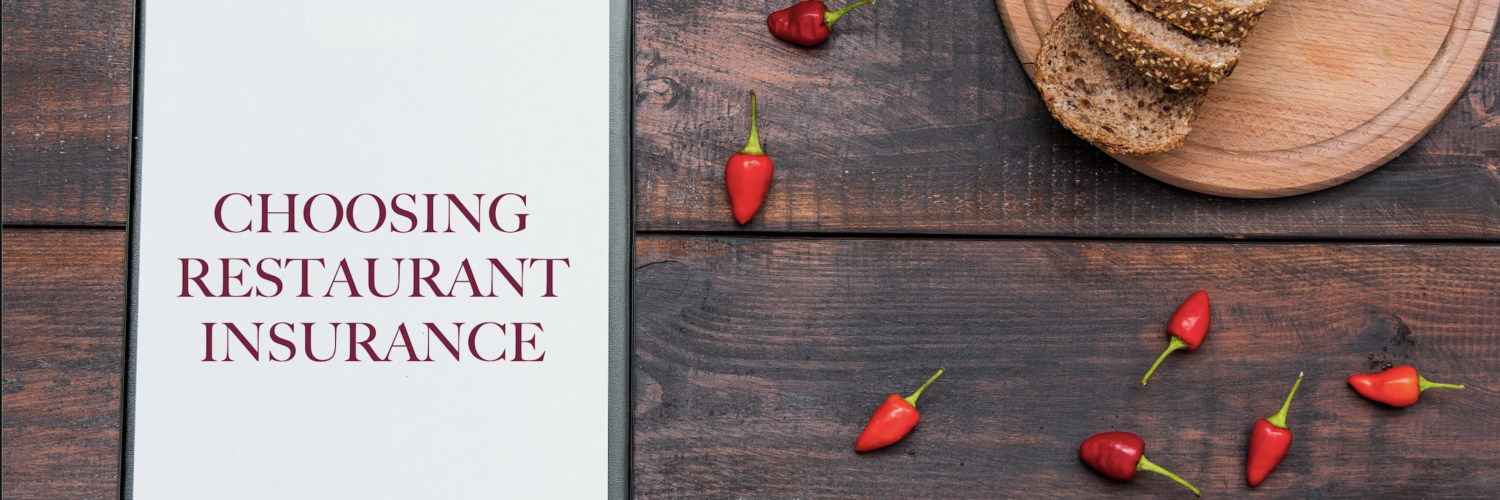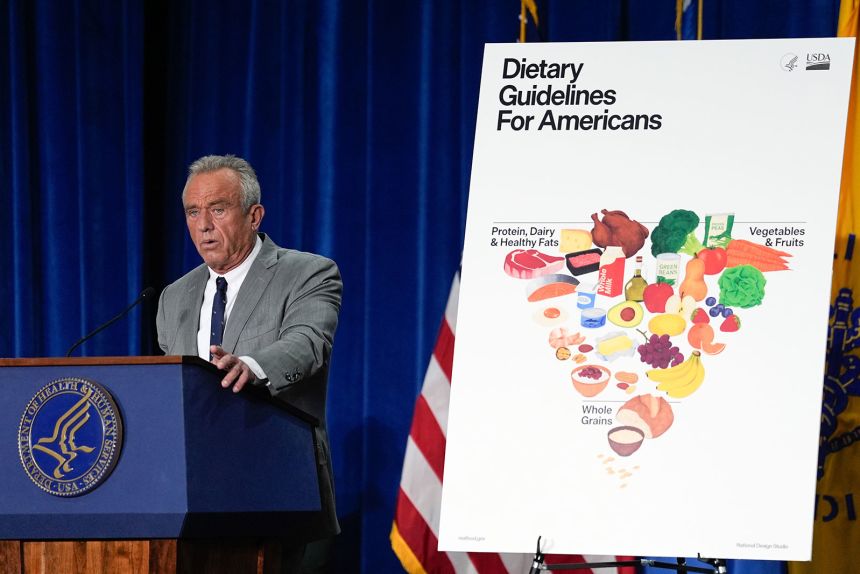In the fast-paced world of the restaurant industry, every detail matters, from crafting exquisite dishes to managing a seamless front-of-house experience. Yet, one of the most crucial elements of running a successful restaurant often remains overlooked: securing the Best Insurance For Restaurants. Far more than a safety net, the right insurance provides a foundation of stability, allowing restaurant owners to focus on growth and innovation without fear of unexpected setbacks.
For Florida’s restaurateurs, this need is amplified by the state’s unique risks, including unpredictable weather, stringent regulations, and the demands of a bustling tourism-driven market. In this guide, we’ll uncover the key insurance policies essential for Florida restaurants, share effective risk management tips, and explore how comprehensive coverage can protect your business while setting it up for long-term success.
The Importance of Tailored Insurance for Florida Restaurants
Florida’s culinary landscape is as vibrant as its sunny skies, with a thriving dining scene shaped by diverse cultures and cuisines. From fresh seafood to international delicacies, Florida restaurants draw locals and tourists alike. However, this dynamic industry operates in a state with unique challenges, making specialized insurance coverage a critical component for success. Here’s a closer look at why tailored insurance is a non-negotiable for restaurant owners in the Sunshine State:
1. Weather-Related Challenges
Florida is synonymous with hurricanes, flooding, and unpredictable weather patterns. These natural phenomena pose significant risks to restaurants, which often have high-value assets such as commercial kitchens, inventory, and dining spaces. Without adequate insurance, a single storm can result in devastating financial losses due to property damage, destroyed inventory, and prolonged business interruptions.
- Statistical Insight: According to the National Oceanic and Atmospheric Administration (NOAA), Florida experiences an average of seven hurricanes every decade, highlighting the pressing need for insurance that includes hurricane and flood coverage.
Restaurants that invest in comprehensive property insurance, including hurricane and flood endorsements, are better equipped to recover swiftly and resume operations after a disaster.
2. Food Safety and Liability
Despite rigorous hygiene practices, no restaurant is immune to the risks associated with foodborne illnesses. Warm climates like Florida’s can exacerbate these risks by accelerating spoilage and contamination. A single food safety incident can result in lawsuits, damaged reputations, and lost revenue.
Specialized food liability insurance can help cover legal costs, settlements, and even public relations efforts to rebuild trust with customers. This coverage is particularly vital for Florida restaurants that specialize in high-risk foods such as raw seafood, which require stringent handling and preparation protocols.
3. Employee-Related Risks
The hospitality industry’s fast-paced environment and high employee turnover rates bring unique challenges, especially in Florida. These dynamics heighten the risk of workplace injuries, such as slips, cuts, or burns. For restaurant owners, ensuring compliance with state laws is crucial, as Florida requires establishments with four or more employees to carry workers compensation insurance. This coverage addresses medical expenses, lost wages, and rehabilitation costs for injured employees, making it a cornerstone of the Best Insurance for Restaurants.
- Proactive Approach: Investing in safety training programs equips employees with knowledge on equipment handling and emergency protocols, reducing accidents and lowering insurance premiums.
4. Customer Safety and Lawsuits
Customer-related risks, such as slip-and-fall incidents, allergic reactions, or other accidents, are common in bustling restaurant environments. These claims are especially complex in Florida, a top tourist destination, as out-of-state visitors may bring additional legal challenges. Liability cases can be costly and potentially harm even the most well-established restaurant’s reputation.
General liability insurance, a key component for Restaurant Insurance, provides critical financial protection in such scenarios. It covers legal expenses, settlements, and medical costs, allowing restaurant owners to manage unforeseen incidents without jeopardizing financial stability.

Why Tailored Coverage Matters
Florida’s legal and environmental challenges require a customized approach to restaurant insurance. A one-size-fits-all policy rarely meets the needs of this industry. Tailored coverage ensures protection against state-specific risks, such as hurricane damage, while maintaining compliance with workers compensation laws.
By partnering with an experienced provider, restaurant owners can select the Best Insurance for Restaurants that aligns with their specific operational needs and long-term goals. This proactive approach empowers businesses to navigate the uncertainties of the industry while focusing on delivering exceptional dining experiences. Tailored insurance isn’t just a safety net; it’s an investment in the resilience and longevity of Florida’s culinary gems.
Key Insurance Policies for Florida Restaurants
The right insurance policy mix offers comprehensive coverage for the multifaceted risks restaurant owners face. Below are the most critical policies to consider:
1. General Liability Insurance
General liability insurance serves as the backbone of restaurant protection, covering claims related to bodily injuries, property damage, or advertising disputes. For instance, if a customer trips on an uneven floor or accuses the restaurant of false advertising, this policy absorbs the financial burden.
- Florida-Specific Note: High tourism rates amplify the risk of liability claims, especially from out-of-state visitors unfamiliar with local regulations.
2. Workers Compensation Insurance
Florida law mandates workers compensation insurance for businesses with four or more employees. This policy covers medical expenses, lost wages, and rehabilitation costs if an employee sustains injuries at work.
- Risk Mitigation Tip: Regular safety training and clearly outlined protocols for handling equipment can reduce workplace accidents, potentially lowering insurance premiums.
3. Business Owners Policy (BOP)
A BOP combines multiple essential coverages—general liability, property insurance, and business interruption insurance—into one cost-effective package. This makes it an attractive option for small to mid-sized restaurants.
- Example: Suppose a hurricane forces your restaurant to close temporarily. A BOP helps offset lost income, employee wages, and repair expenses, ensuring operational continuity.
4. Food Liability Insurance
Given Florida’s warm climate and seafood-heavy cuisine, the risk of foodborne illnesses is heightened. Food liability insurance shields restaurants from legal fees, settlements, and reputational harm stemming from contamination incidents.
- Industry Insight: Public relations support, often included in this policy, can mitigate damage to your restaurant’s reputation in the wake of a food safety issue.
5. Commercial Property Insurance
Commercial property insurance safeguards physical assets like buildings, equipment, and inventory from risks such as theft, fire, and storms. In Florida, adding flood and hurricane coverage is crucial, as standard policies often exclude these perils.
- Proactive Measure: Installing storm-resistant windows and maintaining effective drainage systems can lower premiums while enhancing protection.
Determining Insurance Costs for Florida Restaurants
Understanding the cost of insurance is a vital step for restaurant owners aiming to protect their business while staying within budget. Insurance premiums for Florida restaurants are influenced by various factors that reflect the unique risks and needs of the industry. Here’s a detailed breakdown of what impacts these costs and how restaurant owners can manage them effectively.
Key Factors That Influence Insurance Costs
-
Business Size
The size of a restaurant significantly affects insurance premiums. Larger establishments with more seating capacity, higher customer traffic, and additional assets—such as kitchen equipment, furniture, and inventory—require higher coverage limits to protect against potential losses. Additionally, larger restaurants often have more employees, increasing the cost of required policies like workers compensation insurance.
-
Location
Geographic location is a critical determinant in insurance pricing, particularly in Florida. Restaurants situated in high-risk flood zones or coastal areas face elevated premiums due to the increased likelihood of hurricane-related damage. Properties in urban areas may also have higher premiums due to greater exposure to risks such as theft or vandalism.
- Resource: To evaluate your property’s risk level for flooding, consult FEMA’s Flood Map Service Center, which provides detailed flood zone information.
-
Type of Coverage
The types of coverage a restaurant chooses can dramatically impact costs. While general liability and workers compensation insurance are essential, adding specialized policies such as liquor liability, hurricane insurance, or food liability insurance will increase premiums. However, these additional coverages provide vital protection against risks that could otherwise cripple a business financially.
-
Claims History
A restaurant’s claims history plays a significant role in determining premiums. A clean record with minimal or no claims demonstrates effective risk management, which insurers reward with lower rates. Conversely, frequent claims—whether for employee injuries, property damage, or liability lawsuits—signal higher risk, leading to increased premiums.
Average Insurance Costs for Florida Restaurants
On average, Florida restaurant owners spend between $3,000 and $10,000 annually for comprehensive insurance coverage. This range depends on the factors mentioned above and the specific needs of the business. For instance, a small, family-owned diner might fall on the lower end of the spectrum, while a large, waterfront fine-dining establishment with extensive property assets and liquor service could incur costs at the higher end.
To get an accurate estimate, it’s crucial to work with an insurance provider experienced in restaurant policies. These specialists can evaluate your business’s unique risks and recommend a cost-effective combination of coverage that aligns with your budget.
At Commercialize Insurance Services INC, they can help you quote or re-quote your insurance policies in order to get the best rates on the market! You do not need to over pay for your insurance to have great coverage. Get in touch wit CIS to find the Best Insurance for Restaurants in Florida.
How to Manage Insurance Costs Effectively
Managing costs while securing the Best Insurance for Restaurants is a balancing act that requires strategic planning and informed decision-making. Here are actionable tips to help restaurant owners optimize their insurance expenditures:
1. Bundle Policies
Many insurance providers offer bundled packages, such as a Business Owners Policy (BOP). A BOP combines essential coverages like general liability, property insurance, and business interruption insurance into a single, cost-effective package. Bundling policies not only simplifies management but also reduces overall premiums, making it an excellent option for restaurants seeking comprehensive coverage at a reasonable price.
2. Improve Risk Management Practices
Proactive risk management significantly lowers insurance premiums. Restaurants that implement measures such as employee safety training, strict food safety protocols, and disaster preparedness plans reduce their perceived risk to insurers. This can translate into substantial premium discounts, helping owners secure the Best Restaurant Insurance without overextending their budget.
- Examples of Risk Management Strategies:
- Conduct regular inspections of equipment and facilities to ensure safety and compliance.
- Train employees on proper food handling and emergency response procedures.
- Establish and practice hurricane preparedness plans, particularly vital for Florida-based businesses.
3. Evaluate Deductibles
Opting for a higher deductible can lower premium costs. However, restaurant owners should carefully assess their financial ability to cover the deductible in case of a claim. Striking the right balance ensures cost savings without compromising the ability to address incidents effectively.
4. Seek Expert Guidance
Navigating Florida’s restaurant insurance landscape can be complex, especially with state-specific requirements like hurricane coverage and workers compensation laws. Consulting with an experienced insurance broker who specializes in restaurant policies helps owners tailor their coverage and identify cost-saving opportunities. An expert’s guidance is crucial for finding the Best Insurance for Restaurants, ensuring that coverage aligns with operational needs and local regulations.
Proactive Risk Management Strategies
While securing insurance is essential, proactive risk management reduces the likelihood of claims and helps maintain affordable premiums. Consider these best practices:

-
Food Safety Protocols
Adhering to strict food safety guidelines minimizes the risk of foodborne illnesses and contamination. Key steps include:
- Regular inspections of kitchen equipment and storage facilities.
- Promptly addressing customer complaints about food quality.
-
Employee Training
The restaurant environment is fast-paced, and accidents can happen. Regular employee training can mitigate risks by ensuring that staff are well-prepared to handle equipment safely and respond to emergencies. Topics to cover include:
- Safe use of kitchen tools and appliances.
- Procedures for burns, cuts, and other injuries.
- Preventing common hazards like slips, trips, and falls.
-
Disaster Preparedness
Florida’s hurricane season poses unique risks. Preparing for disasters is essential and can include:
- Securing property with storm-resistant windows and features.
- Digitally backing up essential business records.
- Establishing communication plans for staff and customers during emergencies.
-
Customer Safety
Maintaining a hazard-free environment protects customers and reduces liability risks. This includes:
- Promptly cleaning spills to avoid slip-and-fall accidents.
- Using clear signage to warn of wet or uneven floors.
- Regularly inspecting the premises to address potential safety concerns.
Sustainable Practices and Insurance Savings
Adopting eco-friendly practices is not only beneficial for the environment but can also lower insurance premiums. Many providers offer discounts for restaurants that prioritize sustainability:
- Energy-Efficient Appliances: Using ENERGY STAR-rated equipment reduces fire risks and energy consumption, making it a win-win for safety and cost savings.
- Proper Grease Disposal: Implementing effective grease management systems decreases the likelihood of fires and liability claims.
- Fire-Resistant Materials: Renovating with fire-resistant materials enhances property safety and can result in lower premiums.
Navigating Florida’s Insurance Regulations
Compliance with Florida’s legal requirements is mandatory for restaurant owners to operate without interruptions. Key mandates include:
- Workers Compensation Insurance: Required for businesses with four or more employees to cover workplace injuries and associated costs.
- Unemployment Insurance: Employers must contribute to Florida’s unemployment fund as part of their legal obligations.
- Liquor Liability Insurance: Restaurants serving alcohol often need additional coverage to address incidents stemming from alcohol-related claims.
Failing to comply with these regulations can result in severe consequences, including fines, legal action, or even the suspension of business operations.
Selecting the Right Insurance Provider
Choosing an insurance provider with expertise in Florida’s restaurant industry ensures better coverage and support. Consider the following when evaluating providers:
- Specialization: Opt for companies familiar with the unique risks faced by Florida restaurants.
- Customizable Plans: Flexible policies tailored to specific business needs are crucial.
- Reputation: Review customer testimonials and third-party ratings to gauge the provider’s reliability and service quality.
Securing Long-Term Success
A restaurant is more than just a business—it’s a reflection of passion, creativity, and dedication. Protecting it with the best insurance ensures the peace of mind to tackle challenges head-on, from natural disasters to liability claims.
FAQs About Restaurant Insurance in Florida
-
What is the Best Insurance for Restaurants in Florida?
The best insurance includes general liability, workers compensation, and property insurance. Adding flood and hurricane coverage is essential for Florida-based businesses.
-
Is workers compensation insurance mandatory for Florida restaurants?
Yes, businesses with four or more employees are legally required to provide workers compensation insurance.
-
How can I reduce restaurant insurance costs?
Proactive safety measures, sustainable practices, and bundling policies through a Business Owners Policy (BOP) can help lower premiums.
-
Does restaurant insurance cover hurricane damage?
Standard property insurance excludes hurricane-related flooding. Adding specific hurricane and flood insurance is necessary.
-
What does food liability insurance cover?
Food liability insurance addresses claims related to foodborne illnesses or contamination, including legal fees and settlements.
-
Can I combine multiple policies for better coverage?
Yes, many providers offer bundled packages like BOPs that include liability, property, and business interruption insurance.
-
What happens if I fail to meet Florida’s insurance requirements?
Non-compliance can lead to penalties, including fines, legal action, or suspension of your operating license.
By understanding the intricacies of restaurant insurance and taking proactive steps to manage risks, Florida restaurant owners can ensure their establishments thrive in a dynamic and competitive industry. With the right coverage and strategies in place, the focus remains where it belongs—on delivering unforgettable dining experiences.
Protect Your Restaurant and Start the New Year Right with CIS, Commercialize Insurance Services!
As the New Year approaches, it’s the perfect time to secure your restaurant’s future with the Best Insurance for Restaurants tailored to your needs. Don’t wait for risks to turn into costly problems—partner with CIS, Commercialize Insurance Services, to protect your livelihood and ensure peace of mind. With comprehensive policies designed specifically for Florida restaurants, CIS is here to help you safeguard your business against weather-related risks, liability claims, and more.
Visit https://usa-cis.com/ today to explore your options and find the perfect coverage for your restaurant. Stay updated with valuable insights and tips by connecting with them on social media:
Make this New Year the start of a secure and successful chapter for your restaurant. Contact CIS, Commercialize Insurance Services, today and protect what matters most!





